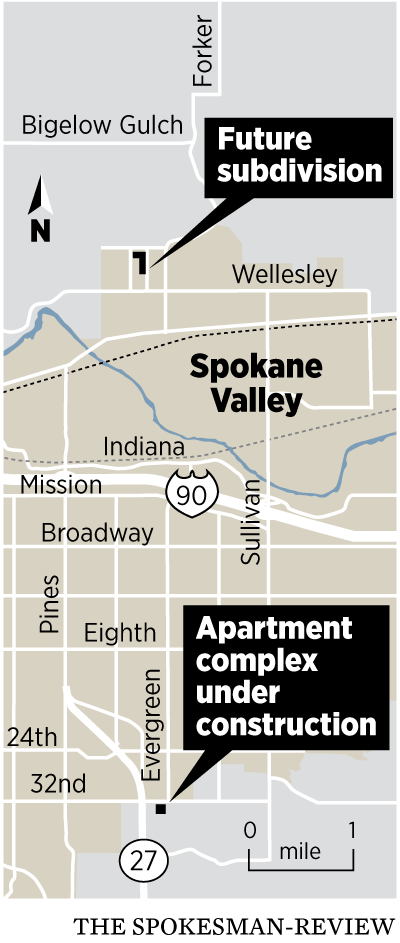Neighbors around Spokane Valley’s Mayhew Road are furious about proposed development - say they received no notice

Sheryl Moore is furious. She’s upset about the planned development of Prairie Flats subdivision, between Keller and Mayhew roads where she lives in Spokane Valley, and she’s angry about how she was treated when she went to testify before the Spokane Valley City Council last week.
“They gave us no direction, nothing,” Moore said. “They say they want to hear our input, but I don’t believe it.”
When Moore spoke on Tuesday, she exceeded the allotted 3-minute speaking time and asked if she could proceed. She was told “no” by Mayor Rod Higgins.
That’s not uncommon, as Higgins runs a tight meeting and always enforces the 3-minute speaking time.
“I am truly sorry that she feels angry, but she had me in a box,” Higgins said.
Moore came with a large group, and Higgins said he wanted to make sure everyone would get a chance to speak.
Other residents in the Keller-Mayhew area spoke, too, and their complaint is a common one: They said they received no notice of the duplexes and single-family homes that may be erected in their rural-looking neighborhood.
Moore said just five property owners received a notification in the mail, and that most received no warning because their lots are so big they don’t fall within the 400-foot notification area established by state law.
The Keller-Mayhew area is situated northeast of Plantes Ferry Park, and it looks rural with horses and llamas grazing on large lots. It’s just inside the Spokane Valley city limit – the county begins at Sanson Road.
The zoning in the Keller-Mayhew area was changed to allow for low-density development in 2003 when Spokane Valley incorporated, and the existing zoning is single-family residential.
The newly adopted comprehensive plan got rid of single-family residential designation and adopted low-density residential zoning, which allows for more living units per acre.
In Moore’s case that means her lot will be surrounded by seven homes if Prairie Flats is built.
Developer Brian Holecek lives on Mayhew Road and wants to subdivide 8.45 acres into 33 lots and build 33 single-family homes and duplexes in two phases: first 15 lots with access from Keller Road; and 18 lots that will connect the first development with Mayhew Road.
“It’s reckless. It will destroy the neighborhood,” Moore said.
A request for comment from the Spokane Valley Planning Department was not returned. City Planner Marty Palaniuk initially offered to meet with the residents Friday evening, but canceled.
Spokane County Planning Director John Pederson said that most jurisdictions within the county follow the same notification process because it is state law.
But sometimes years pass between the zoning change and the pouring of the first foundation.
Pederson said that’s what happened with an apartment complex that’s being built in the county, near the intersection of 32nd Avenue and Evergreen Road.
Some residents there said they were unaware of the complex until the site was fenced off and construction began.
“The zoning was changed in 2001, and there was quite a bit of comment on the site back then,” Pederson said.
But construction applications weren’t filed until April, when the project went through a public hearing process.
“When that first piece of wood goes into the ground, then we have already gone through the application process,” Pederson said.
Spokane Valley Mayor Higgins said he fears part of the problem is that people no longer read the legal notices and they ignore the postcard notifications.
“By the time they see a sign on a lot, it’s too late,” Higgins said.
He added that the 400-foot notification radius isn’t big enough for a rural-type neighborhood.
“In this case it should be more like half a mile,” Higgins said.
Higgins added that he sympathizes with Moore and her neighbors, but the city is growing and has to accommodate the influx of people.
“The zoning is going to change to accommodate more people,” Higgins said.
In the case of Prairie Flats, neighbors have until March 13 to file a complaint with the hearing examiner.